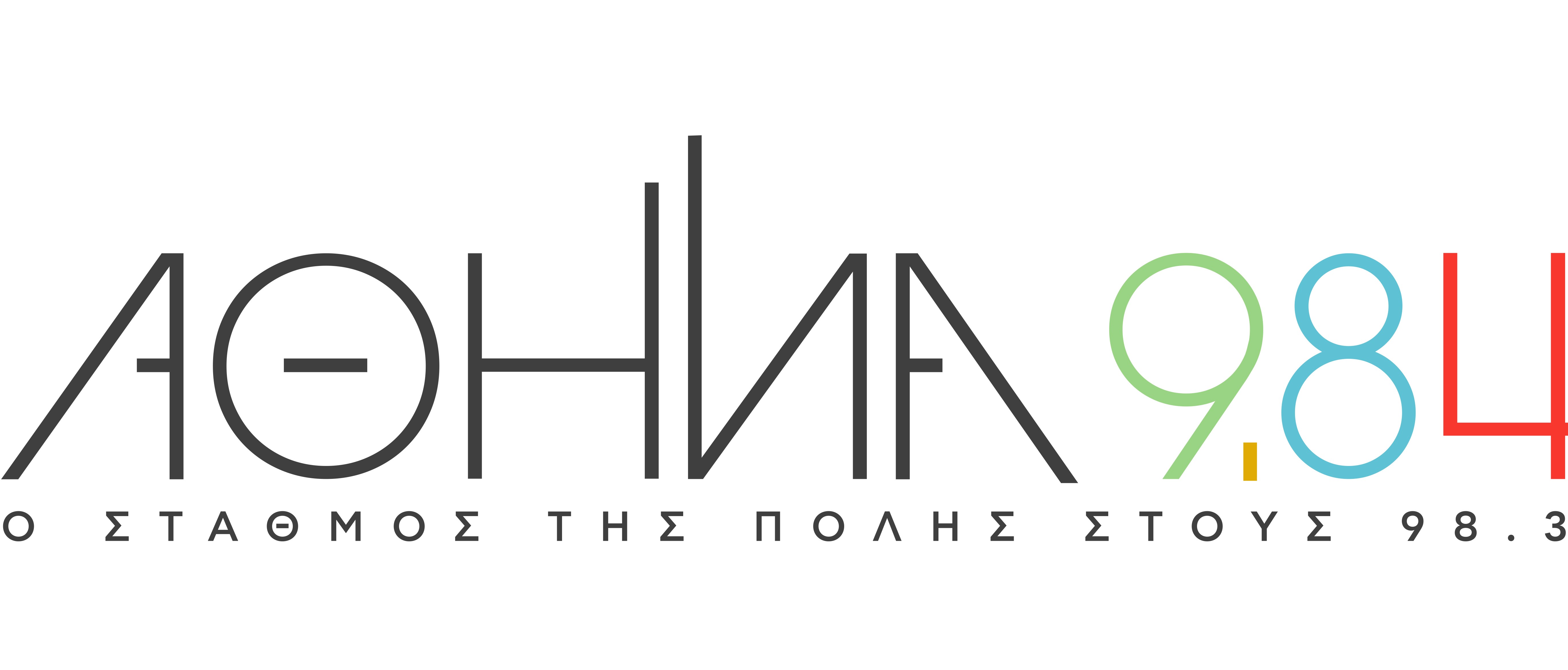Την τελευταία δεκαετία στην πρωτεύουσα κατεγράφησαν περίπου 45.000 πορείες, από τις συνολικά 60.000 που πραγματοποιήθηκαν σε ολόκληρη την χώρα!
Παράλληλα, την ίδια περίοδο, οι Πανεργατικές κινητοποιήσεις (απεργίες και στάσεις εργασίας), έφθασαν τις 65. Εξ αυτών, οι 44 ήταν Γενικές Απεργίες και οι υπόλοιπες πανεργατικές στάσεις εργασίας.
Οι κινητοποιήσεις και τα συλλαλητήρια, πραγματοποιήθηκαν από την ΓΣΕΕ σε συντονισμό με την ΑΔΕΔΥ, ενώ σε συλλαλητήρια τις ίδιες μέρες προχώρησε και το ΠΑΜΕ.
Σύμφωνα με τα στοιχεία της Γενικής Αστυνομικής Διεύθυνσης Αττικής, ο αριθμός – ρεκόρ των διαδηλώσεων, περίπου 11.400, κατεγράφη την πρώτη χρονιά του μνημονίου. Δηλαδή, το 2010.
Ο χαμηλότερος αριθμός των πορειών παρατηρείται το 2017, οπότε υποχώρησαν στις 1920.
Από πέρυσι, οι κινητοποιήσεις παρουσίασαν και πάλι αύξηση, ξεπερνώντας τις 3.500, ενώ φέτος -χωρίς να υπάρχουν συνολικά στοιχεία καθώς το έτος δεν έχει κλείσει- οι διαδηλώσεις έφθασαν τις 2.540.
Ιδιαίτερα δραστήριοι είναι οι συνταξιούχοι, οι οποίοι από τις αρχές του 2018 έχουν πραγματοποιήσει 160 κινητοποιήσεις.
Όμως, το ζήτημα των διαδηλώσεων, δεν είναι μονοδιάστατο και αποτελεί πρόκληση για την κυβέρνηση και την Τοπική Αυτοδιοίκηση, τα συνδικάτα και τους συλλογικούς φορείς.
Από τη μια πλευρά, επισημαίνεται ότι εκτός από το δικαίωμα του συνέρχεσθαι, υπάρχει και το δικαίωμα στην κυκλοφορία και την εργασία.
Η πρόκληση κυκλοφοριακού «εμφράγματος» στην πόλη, δεν έχει ως μοναδικό αποτέλεσμα την ταλαιπωρία των πολιτών.
Σοβαρή είναι η επίπτωση στην οικονομική ζωή της πόλης, καθώς εργαζόμενοι αδυνατούν να προσέλθουν εγκαίρως στην δουλειά τους, ο τζίρος των εμπορικών καταστημάτων κατακρημνίζεται, ενώ κινδυνεύει να πληγεί ο τουρισμός, που πλέον έχει αυξηθεί κατακόρυφα στην πρωτεύουσα.
Από την άλλη πλευρά τονίζεται ότι εργαζόμενοι, συνταξιούχοι, φοιτητές και ευαίσθητες κοινωνικά ομάδες, δεν διαδηλώνουν από…χόμπι.
Ιδιαίτερα κατά την περίοδο των επώδυνων μνημονιακών μέτρων.
Μάλιστα, συνδικαλιστικά στελέχη υπογραμμίζουν ότι συλλαλητήρια πραγματοποιούν ακόμη και όσοι εκφράζουν τη δυσφορία τους για τις συνέπειες των συγκεντρώσεων διαμαρτυρίας, όπως οι μικρομεσαίοι έμποροι και καταστηματάρχες, αλλά ακόμη και οι αστυνομικοί, οι οποίοι δεν παύουν να είναι εργαζόμενοι.
Ο…δρόμος είχε την δική του ιστορία
Το 2001, πριν από περίπου 20 χρόνια, ο σημερινός υπουργός Προστασίας του Πολίτη και τότε υπουργός Δημοσίας Τάξεως, Μιχάλης Χρυσοχοϊδης, προώθησε νομοσχέδιο για την οριοθέτηση των πορειών, το οποίο όμως δεν απέκτησε την ισχύ νόμου.
Μετά από τρία χρόνια, ο Βύρων Πολύδωρας από την ίδια θέση, επανέλαβε την ανάγκη για νέο νόμο σχετικά με τις διαδηλώσεις, που -επίσης- δεν προωθήθηκε.
Ο σχεδιασμός, δεν προέβλεπε ποινές για τους παραβάτες, δηλαδή για όσους με διαδηλώσεις μικρότερες των 500 ατόμων έκλειναν τον δρόμο.
Όμως, έδινε το δικαίωμα σε όσους ζημιώνονται οικονομικά από διαδηλώσεις, να προσφεύγουν στην Δικαιοσύνη καταθέτοντας αγωγές εναντίον οργανώσεων ή συγκεκριμένων διαδηλωτών για αποζημίωση.
Το 2013 το θέμα επανήλθε από τον τότε υπουργό Προστασίας του Πολίτη και σημερινό υπουργό Εξωτερικών Νίκο Δένδια.
Επρόκειτο για νομοθετική ρύθμιση με περιορισμούς σε διαδηλώσεις κάτω των 200 συμμετεχόντων σε πόλεις με πληθυσμό άνω των 100.000 κατοίκων και θα ίσχυε όλο τον χρόνο και όχι μόνο κατά την τουριστική περίοδο, όπως αρχικά είχε εξεταστεί.
Τι θα ισχύσει για τις πορείες
Σύμφωνα με πληροφορίες, προσανατολισμός της κυβέρνησης είναι να εξετάσει διάφορα εναλλακτικά μοντέλα διαχείρισης του ζητήματος, ανάλογα με τον όγκο των διαδηλώσεων, ως εξής:
- Οι πολύ μικρές διαδηλώσεις, να πραγματοποιούνται στο πεζοδρόμιο, ώστε να μην παρεμποδίζεται η κυκλοφορία των οχημάτων.
- Οι μικρές πορείες, να περιορίζονται σε μια λωρίδα κυκλοφορίας ώστε να μην διακόπτεται η κυκλοφορία στις κεντρικές οδικές αρτηρίες.
- Οι μεγάλες σε όγκο διαδηλώσεις, να ακολουθούν συγκεκριμένη διαδρομή, ώστε να είναι ευκολότερη η διαχείριση της κυκλοφορίας των οχημάτων από την Αστυνομία ή να ορίζεται συγκεκριμένος χώρος για την πραγματοποίηση συγκέντρωσης.
Ο κυβερνητικός εκπρόσωπος, Στέλιος Πέτσας δήλωσε ότι μέσα στις επόμενες εβδομάδες και σίγουρα πριν τα Χριστούγεννα, θα υπάρξει διαβούλευση με όλους τους εμπλεκόμενους με στόχο μέσα στο επόμενο χρονικό διάστημα -είτε έως το τέλος του τρέχοντος έτους, είτε από τις αρχές του 2020- να υπάρξει νομοσχέδιο, το οποίο θα καθιερώνει νέο πλαίσιο για τις πορείες «με γνώμονα και τη δυνατότητα των πολιτών να διαδηλώσουν εφόσον το επιθυμούν, χωρίς να ταλαιπωρούνται όλοι».
Διχασμένοι οι Αθηναίοι
Διχασμένοι εμφανίζονται οι Αθηναίοι όσον αφορά στην προωθούμενη από την κυβέρνηση ρύθμιση για περιορισμό των διαδηλώσεων και πορειών στο κέντρο της πόλης. Η πλειονότητα, ωστόσο, των πολιτών με τους οποίους συνομίλησε ο Αθήνα 9.84 είναι κατά των βανδαλισμών και των επεισοδίων κάνοντας λόγο για ανεπίτρεπτες καταστροφές και καπέλωμα των κινητοποιήσεων από αναρχικούς. Παράλληλα όσοι δηλώνουν κατά της θέσπισης περιοριστικών μέτρων εκφράζουν τον φόβο να χαθεί στο μέλλον το δικαίωμα τους να διεκδικούν και ότι καταπατάται το δικαίωμα στην ελευθερία του λόγου.
Σεβασμός απ΄όλους
Προς την σωστή κατεύθυνση κρίνει το μέτρο περιορισμού των διαδηλώσεων και πορειών στο κέντρο της πόλης ο εμπορικός κόσμος.
«Σεβόμενοι πραγματικά τα δικαιώματα όλων των κοινωνικών ομάδων στην απεργία και στην διαδήλωση λέμε πως πρέπει να σέβονται και εκείνοι το δικαίωμα μας στη δουλειά» δηλώνει στον Αθήνα 9.84 ο Νίκος Κουγιουμτζής αντιπρόεδρος του Επαγγελματικού Επιμελητηρίου Αθηνών.
«Μετρήσαμε πριν 2-3 χρόνια 900 πορείες και συγκεντρώσεις στο κέντρο της Αθήνας σε ενάμιση χρόνο. Θεωρούμε ότι οι μικρές πορείες των 100-150 ανθρώπων πρέπει να γίνονται σε μία λωρίδα κυκλοφορίας και βεβαίως οι ακόμα μικρότερες επί του πεζοδρομίου» προσθέτει ο κ. Κουγιουμτζής. «Ο εμπορικός κόσμος θεωρεί ότι το μέτρο είναι προς την σωστή κατεύθυνση και πως η εφαρμογή του θα δώσει ώθηση στην επιχειρηματικότητα της πόλης, η οποία έχει πληγεί από την οικονομική κρίση εδώ και δέκα χρόνια. Έχει επίσης πληγεί από την ανασφάλεια που αισθάνονται οι πολίτες στο κέντρο της πόλης, ας μην έχουμε ένα επιπρόσθετο παράγοντα που είναι οι πορείες και οι οποίες, σε ένα ποσοστό έχουν ευθύνη για την μείωση της κατανάλωσης στο κέντρο της Αθήνας. Πρέπει όλοι οι φορείς και η αστυνομία να κάνουν σωστή διαχείριση των διαδηλώσεων και πορειών».
Χρειάζεται διάλογος
«Δεν μπορούμε να μιλάμε για περιορισμό δικαιωμάτων συνταγματικά κατοχυρωμένων, όπως είναι αυτό της διαμαρτυρίας, της διεκδίκησης της συλλογικής. Όλα αυτά τα ζητήματα διευθετούνται και λύνονται στο τραπέζι του κοινωνικού διαλόγου, ο οποίος δεν έχει καν ξεκινήσει. Το οργανωμένο συνδικαλιστικό κίνημα πάντα βρίσκεται σε μία συνεργασία με τις Αρχές, πριν από κάθε κινητοποίηση» τόνισε ο κ. Δημήτρης Καραγεωργόπουλος, Γραμματέας Τύπου και επικοινωνίας της ΓΣΕΕ. «Φροντίζουμε να λαμβάνονται εκείνα τα απαιτούμενα μέτρα ώστε να μην υπάρχει ταλαιπωρία γιατί κι εμείς εργαζόμενοι είμαστε και αντιλαμβανόμαστε και την αγωνία , των εμπόρων, των μικρομεσαίων, και την ταλαιπωρία τους. Έχει παρατηρηθεί όμως το φαινόμενο να λαμβάνονται δυσανάλογα μέτρα τάξης, όπως να αποκλείονται ολόκληρα οικοδομικά τετράγωνα για μία πολύ μικρή συγκέντρωση και αυτό είναι που μας προβληματίζει. Δεν μπορούμε εμείς να εισέλθουμε σε επιχειρησιακά ζητήματα, αλλά είναι κάτι που μας προβληματίζει, μία συζήτηση πάνω σε αυτό δεν έχει υπάρχει. Ενδεχομένως στο επόμενο διάστημα και όταν ανοίξει αυτός ο διάλογος, αν η πολιτεία θελήσει να τον ανοίξει και δεν θελήσει να τον φέρει με fast track διαδικασίες, στο κοινοβούλιο και να μας φέρει προ τετελεσμένων γεγονότων , είναι κάτι που θα θέσουμε». Όπως ανέφερε ο κ. Καραγεωργόπουλος, «είναι υποχρέωση των συνδικάτων να ανταποκρίνονται σε κάθε πρόσκληση για ζητήματα που άπτονται και της αρμοδιότητας αλλά και της θεσμικής ευθύνης που έχουμε. Εκ πρώτης σας λέω ότι διαφωνούμε με τον τρόπο με τον οποίο επιχειρείται να εισέλθει στο δημόσιο διάλογο αυτό το ευαίσθητο κοινωνικό ζήτημα και είμαστε και υποψιασμένοι».
Ευέλικτο νομοσχέδιο
«Θα πρέπει να υπάρχει σεβασμός στις διαδηλώσεις και να σεβόμαστε τον αγώνα των εργαζομένων όταν αδικούνται από κυβερνητικά μέτρα. Το νομοσχέδιο θα πρέπει να είναι ευέλικτο ως προς τους κανόνες που θα θέτει. Η κυβέρνηση πρέπει να έρθει σε διάλογο πριν καταθέσει οποιοδήποτε νομοσχέδιο», τόνισε, επίσης, στο σταθμό μας ο πρόεδρος της πανελλήνιας Ομοσπονδίας Αστυνομικών Υπαλλήλων, Γρηγόρης Γερακαράκος.
Ο ίδιος έθεσε το ερώτημα: Ποιός θα είναι αυτός που μετρά τον αριθμό των συγκεντρωμένων για να κρίνει εάν μια συγκέντρωση είναι μικρή, προσθέτοντας ότι δεν είναι σωστό 100 άτομα να κλέινουν το δρόμο. Σημείωσε δε ότι πολλές κυβερνήσεις επιζητούν τα επεισόδια ώστε να μην μαθαίνουν η κοινωνία και ο πολίτης τα αιτήματα των εργαζομένων. «Όταν δεν περιφρουρείτε μια διαδήλωση, χάνονται τα δίκαια αιτήματα και το συνδικαλιστικό κίνημα χρεώνεται τα επεισόδια» κατέληξε.
ΠΑΜΕ: Η κυβέρνηση εφαρμόζει το δόγμα του νόμου και της τάξης
«Το σίγουρο είναι ότι η ΝΔ δεν έχει πρόθεση να κάνει τον τροχονόμο. Η κυβέρνηση εφαρμόζει το δόγμα του νόμου και της τάξης, πηγαίνοντας χέρι χέρι μαζί με την αντιλαϊκή πολιτική. Δεν κόπτονται για τα συμφέροντα των μικρών επιχειρηματιών, των αυτοαπασχολούμενων στο κέντρο της Αθήνας, που άλλωστε τις συνέπειες της πολιτικής και του ΣΥΡΙΖΑ και της ΝΔ πολύ καλά τη βιώνουν στο πετσί τους οι εργαζόμενοι» ανέφερε ο κ. Νίκος Μαυροκέφαλος, μέλος της Εκτελεστικής Γραμματείας του ΠΑΜΕ και της Διοίκησης του ΕΚΑ. «Η ΝΔ» συνέχισε «θέλει να συκοφαντήσει τους εργατικούς λαϊκούς αγώνες. Θέλει να ρίξει τη μπάλα στην εξέδρα, να πει ότι για τα προβλήματα των εργαζομένων φταίνε οι αγώνες και οι διεκδικήσεις τους κι όχι αυτή η αντιλαϊκή πολιτική. Και γι’ αυτό προσπαθεί να ενοχοποιήσει συνολικά τους εργατικούς και λαϊκούς αγώνες κι όχι να διαχειριστεί απλώς την παρουσία μικρών ή μεγαλύτερων κινητοποιήσεων».
Σε ερώτηση εάν το ΠΑΜΕ θα συμμετάσχει σε διαβούλευση για τις πορείες, κατόπιν κυβερνητικής πρόσκλησης ο κ. Μαυροκέφαλος απάντησε: «Η πρόσφατη πείρα και τον Γενάρη του 2018, όταν ο ΣΥΡΙΖΑ έφερε το νόμο ενάντια στις απεργίες και το προηγούμενο διάστημα, όταν η κυβέρνηση της ΝΔ έφερε το νόμο για τα Συνδικάτα, συνομιλητές βρήκε κι από τη σκοπιά των εργατών, των “εργατοπατέρων” θα λέγαμε εμείς, βρήκε στη ΓΣΕΕ πρόθυμους τέτοιους συνδικαλιστές να κάτσουν στο τραπέζι του διαλόγου για να συζητήσουν ποιά από τα εργασιακά και συνδικαλιστικά δικαιώματα θα χαθούν. Τέτοια δύναμη δεν είναι το ΠΑΜΕ και δεν είναι όχι γιατί έχουμε κάποια εμμονή, δεν είμαστε εμμονικοί απέναντι σε μια πραγματικότητα που διαμορφώνεται, αλλά επιδιώκουμε να είμαστε ουσιαστικοί απέναντι στα προβλήματα των εργαζομένων και ποιά θα είναι η προοπτική, η διέξοδος». Καταλήγοντας σημειώνει ότι «υπάρχει μια προσπάθεια ενοχοποίησης των εργατικών αγώνων και των διεκδικήσεων απέναντι στα δίκαια αιτήματα των εργαζομένων κι αυτό είναι που πρέπει να πολεμηθεί, κατά τη γνώμη μας».
Μπορεί μια πορεία να απαγορευτεί;
Το Σύνταγμα, οι νόμοι και τα δικαιώματα
«Πρώτα από όλα, μια πορεία μπορεί να απαγορευτεί; Οι Έλληνες έχουν το δικαίωμα να συνέρχονται ήσυχα και χωρίς όπλα. Δεν υπάρχει περιορισμός στο Σύνταγμα ως προς αυτό. Εκείνο που προβλέπεται από το Σύνταγμα, όμως, είναι να μπορεί με νόμο να καθοριστεί, με αιτιολογημένη απόφαση της αστυνομίας να μην γίνει μια πορεία, εάν επίκειται σοβαρός κίνδυνος για τη δημόσια ασφάλεια» σημειώνει στον σταθμό μας ο κ. Γιάννης Καρούζος, εργατολόγος .
Συνεχίζοντας τονίζει ότι «επ’ αυτού, έγιναν πολλές προσπάθειες κι από τον κ. Χρυσοχοϊδη το 2001 κι από τον κ. Πολύδωρα, όταν ήταν Υπουργός Δημόσιας Τάξης για να τροποποιήσουν ένα νομοθετικό διάταγμα, που ισχύει στη χώρα μας από το 1971, επί Χούντας δηλαδή, όπου εκεί, με την επίκληση αυτού του νομοθετικού διατάγματος, ακόμη και πρόσφατα έχει γίνει η επίκλησή του και εφαρμογή του, έχουν απαγορευτεί πορείες στο κέντρο της Αθήνας, κυρίως όταν έρχονται ηγέτες. Αυτή η αναγκαιότητα να αλλάξει το νομοθετικό διάταγμα είναι μια αναγκαιότητα που από καιρόν εις καιρόν η νομική επιστήμη την αναδεικνύει. Δε σημαίνει, όμως, ότι σήμερα δεν μπορεί μια πορεία να διεξαχθεί στο κέντρο.
Ποιά είναι τα θέματα που αναφύονται σε μια τέτοια περίπτωση; Δηλαδή, όταν υπάρχουν κι άλλα ατομικά δικαιώματα, εκτός από το δικαίωμα να συμμετέχω σε μια πορεία, που λέγεται το δικαίωμα του συναθροίζεστε, το δικαίωμα του να πάω στη δουλειά μου, του να ανοίξω το κατάστημά μου σαν επιχειρηματίας. Αυτά είναι λοιπόν τα δικαιώματα που στο ίδιο χρονικό διάστημα που εξελίσσεται μια πορεία, εξελίσσονται και αναπτύσσονται κι αυτά.
Δεν υπάρχει προτεραιότητα στην προάσπιση των δικαιωμάτων στο Σύνταγμα. Θα πρέπει, λοιπόν, να υπάρχει μια εξισορρόπηση. Θεωρώ ότι η εξισορρόπηση έχει να κάνει και με τον τρόπο διεξαγωγής της πορείας, έχει να κάνει με την αρχή της αναλογικότητας και έχει να κάνει με τη σπουδαιότητα για τον εργαζόμενο να συμμετέχει σε μια πορεία, εφόσον υπάρχει νόμιμο δικαίωμα αποχής από την εργασία, όπως είναι η απεργία» καταλήγει ο κ. Καρούζος.









